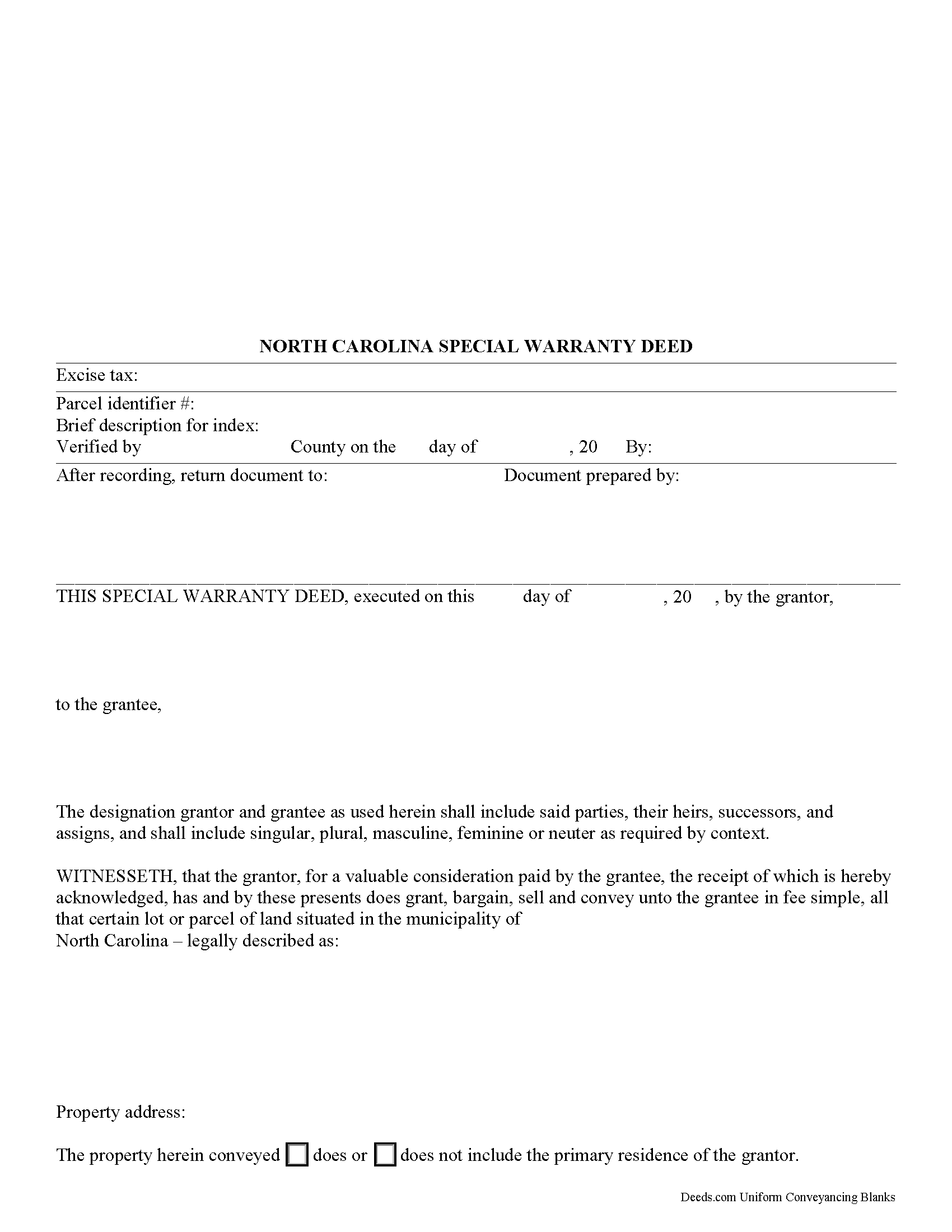Download North Carolina Special Warranty Deed Legal Forms

North Carolina Special Warranty Deed Overview

Real property can be transferred in North Carolina by using a special warranty deed. This type of deed does not have the same warranties of title contained in a general warranty deed. The North Carolina General Statutes do not offer a statutory form for real estate deeds. The grantor in a special warranty deed offers the following covenants to the grantee: (1) that the grantor has done nothing to encumber the title, and (2) that the grantor will warrant and defend such title against the lawful claims of all persons claiming by, through, or under the grantor.
North Carolina requires strict compliance with the statutory acknowledgment provisions in order for documents to be recorded and to provide constructive notice. Before it can be accepted for recording by a register of deeds, a special warranty deed must be signed by the grantor and properly acknowledged before an officer authorized by the state of North Carolina to take acknowledgments of deeds. The individual form for an acknowledgment by a grantor in 47 38 of the North Carolina General Statutes is sufficient to use for a special warranty deed acknowledged within the state. If a special warranty deed has been executed and acknowledged in a state other than North Carolina, the deed will be valid to record in this state, but it must conform to North Carolina law.
The recording statute in North Carolina is a pure race statute, which means that the first document recorded will have priority. A conveyance of land will not be valid to pass any property interest as against a lien creditor or purchaser for valuable consideration from the donor, bargainer, or lesser until it is registered in the county where the land lies. If the land is situated in more than one county, the deed must be recorded in each such county. Unless it is stated otherwise on the special warranty deed or on a separate registered instrument executed by the party whose priority interest is adversely affected, instruments that have been registered in the office of the register of deeds will have priority based on the order of registration. If registered simultaneously, priority will be determined by the earliest document number set forth on the registered instrument or on the sequential book and page number if there is no document number ( 47 18).
(North Carolina SWD Package includes form, guidelines, and completed example)